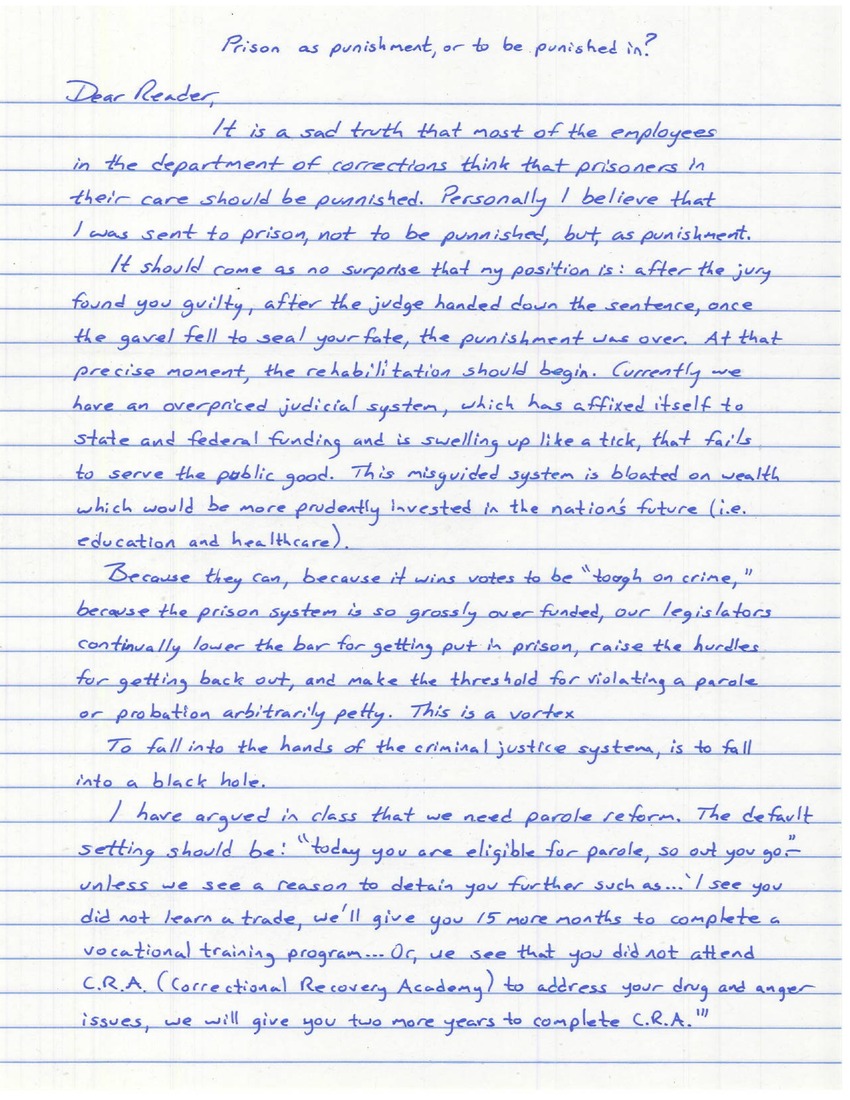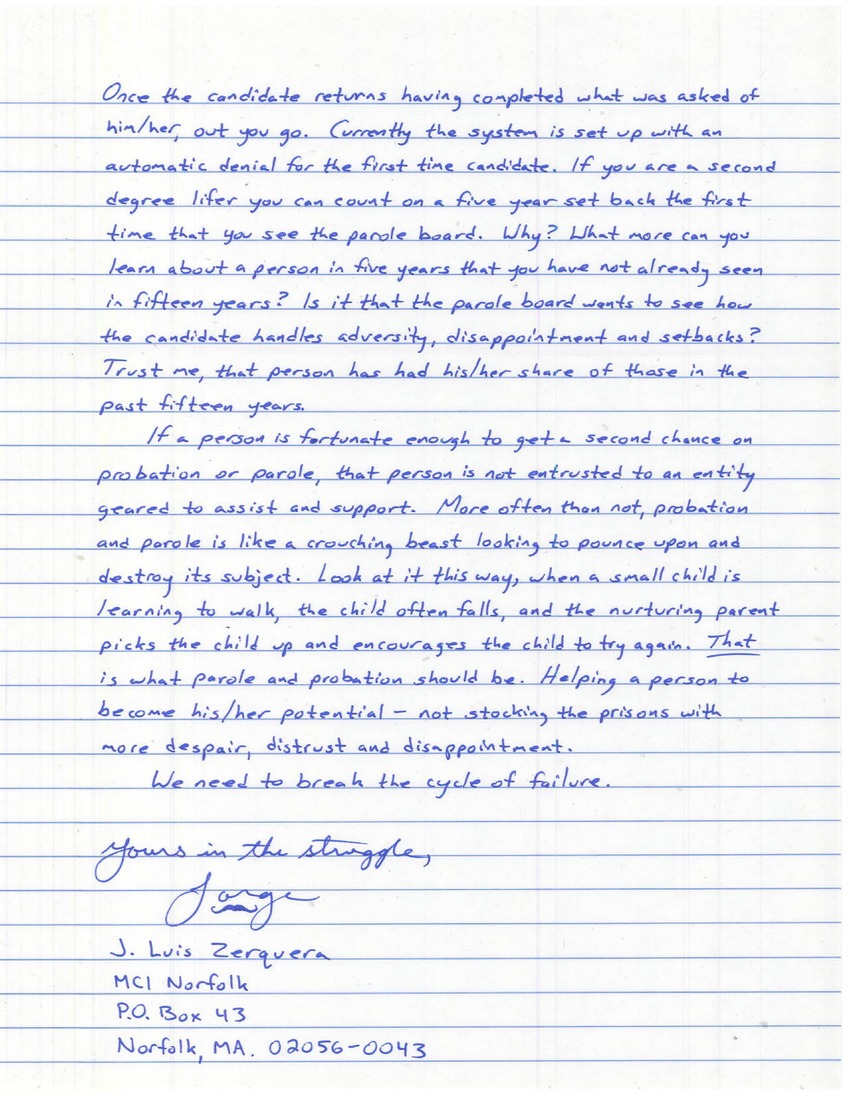
Transcription
Prison as punishment, or to be punished in?
Dear Reader
It is a sad truth that most of the employees in the department of correction think that prisoners in their care should be punished. Personally I believe that I was sent to prison, not to be punished, but, as punishment.
It should come as no surprise that my position is: after the jury found you guilty, after the judge handed down the sentence, once the gavel fell to seal your fate, the punishment was over. At that precise moment, the rehabilitation should begin. Currently we have an overpriced judicial system, which has affixed itself to state and federal funding and is swelling up like a tick, that fails to serve the public good. This misguided system is bloated on wealth which would be more prudently invested in the nation's future (i.e. education and healthcare).
Because they can, because it wins votes to be "tough on crime," because the prison system is so grossly over funded, our legislators continually lower the bar for getting put in prison, raise the hurdles for getting back out, and make the threshold for violating a parole or probation arbitrarily petty. This is a vortex
To fall into the hands of the criminal justice system, is to fall into a black hole.
I have argued in class that we need parole reform. The default setting should be: "today you are eligible for parole, so out you go." unless we see a reasons to detain you further such as...'I see you did not learn a trade, we'll give you 15 more months to complete a vocational training program...or, we see that you did not attend C.R.A. (Correctional Recovery Academy) to address your drug and anger issues, we will give you two more years to complete C.R.A.'"
Once that candidate returns having complete what was asked of him/her, out you go. Currently the system is set up with an automatic denial for the first time candidate. If you are a second degree lifer you can count on a five year set back the first time that you see the parole board. Why? What more can you learn about a person in five years that you have not already seen in fifteen years? It is that the parole board wants to see how the candidate handles adversity, disappointment and setbacks? Trust me, that person has had his/her share of those in the past fifteen years.
If a person is fortunate enough to get a second chance on probation or parole, that person is not entrusted to an entity geared to assist and support. More often than not, probation and parole is like a crouching beast looking to pounce upon and destroy its subject. Look at it this way, when a small child is earning to walk, the child often falls, and the nurturing parent picks the child up and encourages the child to try again. That is what parole and probation should be. Helping a person to become his/her potential - not stocking the prisons with more despair, distrust and disappointment.
We need to break the cycle of failure.
Yours in the struggle,
Jorge
J. Luis Zerquera
MCI Norfolk
P.O. Box 43
Norfolk, MA. 02056-0043
Other posts by this author
|
2013 mar 10

|
2012 nov 4

|
2012 jun 15

|
2011 may 13

|
2011 apr 17

|
2010 nov 24

|
More... |




Replies